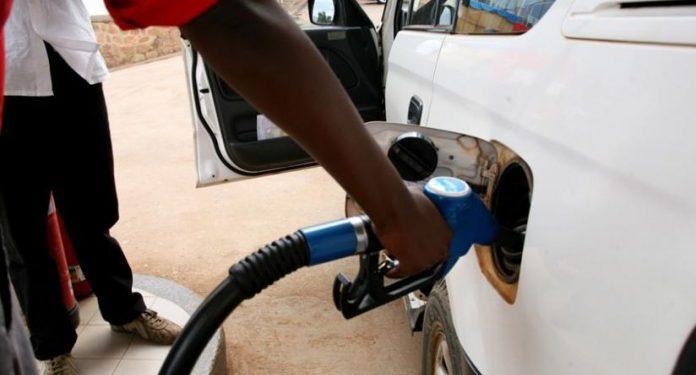Fuel prices have gone up four times in two months – COPEC laments
- Advertisement -
The Chamber of Petroleum Consumers (COPEC) is advocating for a review of the price stabilization and recovery levy to forestall further increases in petroleum products.
Petroleum products have been increased about four times in the spate of two months.
- Advertisement -
COPEC attributed the situation to the Coronavirus pandemic and the current situation in Texas.
- Advertisement -
Winter storms knocked out about a dozen refineries in Texas, leading to a sharp run-up in prices of fuel.
Read More:
“Ghanaian pumps over the past 2 months have seen about 4 different spots of increases of about 9% cumulative variance and was our expectation that pump prices would ease downwards from the month of March.”
“However, these price increases seem far from over due to the current situation in Texas and overwhelming heating requirements for crude and Gasoil across the globe as prices continue to surge by the day.”
COPEC believes the application of the levy will cushion consumers from any further increases.
It is our understanding following from consultations with a good number of Oil Marketing Companies (OMCs) that, a downward review of the price stabilisation and recovery levy will most likely cushion the market and will forestall any further increases though it wouldn’t absorb everything as some market players have already started increasing pump prices due to the pressures the price escalations on the world market presents currently.”
Below is the statement from COPEC
CHAMBER OF PETROLEUM CONSUMERS GHANA
ACCRA
25/02/2021
FUEL PRICES SET TO GO UP AGAIN BY BETWEEN 2-4%
REMOVE THE PRICE STABILISATION NOW TO CUSHION THE EFFECTS OF INTERNATIONAL MARKET PRICES AND THEIR IMPACT ON PUMP PRICES.
International Oil Prices for both crude and refined oil has surged by more than 12% from around $470/mt-$512/mt representing a difference of around $42/mt for both gasoline and gasoil
- Advertisement -
Whiles crude has moved from $59.57/barrel (Brent) as of 20th February to $67/barrel as of today 25th February 2021, due largely to the recovery of the global economy from the harsh effects of the Corona virus pandemic as well as the power crises in Texas which has seen a reduction in oil production by 4million barrels a day.
This knock off translates to about 40% of United States oil output along with the Organisation of Petroleum Exporting Countries’ (OPECs) continuous cuts of around 9.2 million barrels per day of oil supplies due to a projected decline in demand globally from the 2nd quarter. (Energy Information Administration, 2020; Oilprice.com; momr.opec.org).
These surges in oil prices (Brent) translates to about $41 variance or increase in prices of finished products ( both petrol and diesel) on the platt trading platform, thereby effectively increasing prices from the BDC or importers position which is taking a huge on the various oil marketing companies who are also likely to pass on these increases on at the local pump prices even before first pricing window of next month starting from Monday the 1st of March, 2021.
These increases on the international markets to translates to about 21p/litre at the local pumps and is likely to reflect on the Ghanaian petroleum consumer within the next few hours even before the start of the next pricing window in March.
The cedi within the period has however performed quite well, appreciating against the dollar though nominally. The Bank of Ghana as at 16th February pegged its interbank FX rate of Ghana Cedi to US dollar at Ghc 5.7597.
Analysis of the indicative prices of Gasoil and Gasoline on the market indicates, both gasoil and gasoline currently sell at an average of Ghc 5.11 per litre from earlier figures of around 4.70/litre as of December ending at some pumps though others also quote a bit higher than the market averages.
These current prices are likely to see between 12-24 pesewas increases even before the 1st of March due largely to the price escalations on the international market.

It is our estimation that the pending increases could be averted through the application or review downwards of the Price Stabilisation and Recovery Levy on the price build-up of between 12-16p/litre to cushion the market in order to potentially prevent these possible increases likely to reflect at our local pumps anytime soon.
Ghanaian pumps over the past 2 months have seen about 4 different spots of increases of about 9% cumulative variance, and was our expectation that pump prices would ease downwards from the month of March.
However, these price increases seem far from over due to the current situation in Texas and overwhelming heating requirements for crude and Gasoil across the globe as prices continue to surge by the day.
It is our understanding following from consultations with a good number of Oil Marketing Companies ( OMCs) that, a downward review of the price stabilisation and recovery levy will most likely cushion the market and will forestall any further increases though it wouldn’t absorb everything as some market players have already started increasing pump prices due to the pressures the price escalations on the world market presents currently.
We further call on the Government and the Ministry of Energy to ensure the local refinery in Tema is brought back to productivity as soon as possible to ensure petroleum security as geopolitical developments across the globe seem pretty turbulent and could get worse by the end of the 2nd quarter.
Signed.
Duncan Amoah
Executive Secretary
Source: CNR
- Advertisement -

